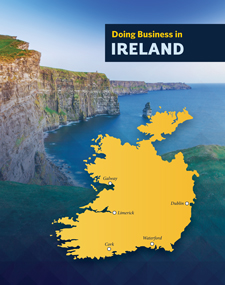Overview
Doing Business in the European Union 2020: Greece, Ireland and Italy assesses the regulatory environment for businesses and its impact on local entrepreneurs in 6 cities in Greece (Alexandroupoli, Athens, Heraklion, Larissa, Patra and Thessaloniki), 5 cities in Ireland (Cork, Dublin, Galway, Limerick and Waterford) and 13 cities in Italy (Ancona, Bari, Bologna, Cagliari, Florence, Genoa, Milan, Naples, Padua, Palermo, Reggio Calabria, Rome and Turin). The study measures regulations relevant to five stages in the life of a small to medium-size domestic firm: starting a business, dealing with construction permits, getting electricity, registering property and enforcing contracts. In each of these areas, the study highlights good practices that can be leveraged to empower local entrepreneurs and firms.
Doing Business in the European Union is a series of subnational studies requested and funded by the European Commission, Directorate-General for Regional and Urban Policy, and produced by the World Bank Group. Previous editions, covering cities from Bulgaria, Croatia, the Czech Republic, Hungary, Portugal, Romania and Slovakia, were released in 2017-2018.
Where is it easier to do business in Ireland?
Main Findings
- No single city dominates in all five areas measured. Galway leads in starting a business and registering property, Waterford in dealing with construction permits, Dublin in getting electricity, and Cork in enforcing contracts.
- Disparities in performance shows Irish cities have opportunities to learn from good practices within the country. All Irish cities operate under the same national legal framework, so changes can be made without major legislative overhaul.
- Starting a business is one of the areas in which all five Irish cities outscore the EU average and most EU member states. Despite the homogeneous performance in this indicator, Irish cities face common bottlenecks, such as registration for Value Added Tax (VAT).
- Dealing with construction permits is one of the areas with the greatest variation in performance across the five cities benchmarked. The cost of dealing with construction permits ranges from 1.1% of the warehouse value in Galway to almost four times that in Dublin.
- Notable variations are also recorded in the other three areas measured: getting electricity, registering property and enforcing contracts.
- If one creates an overall ease of doing business score for Ireland based on the highest score of the best performing city on each indicator benchmarked, Ireland’s global Doing Business ranking would jump nine places to 15 out of 190—a great accomplishment given how hard it is for a country to climb in the rankings when already highly ranked.

